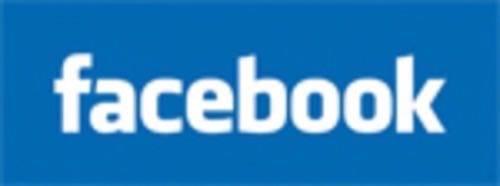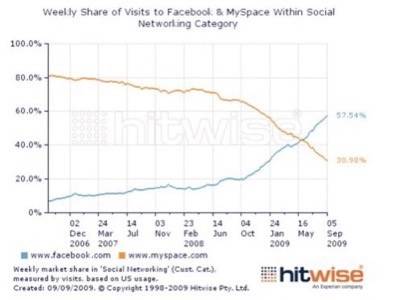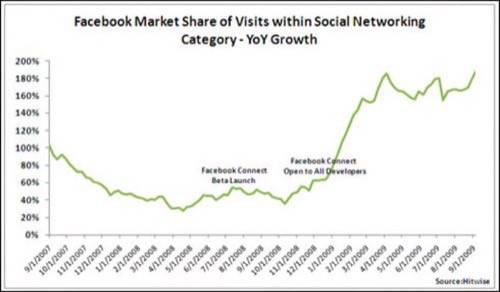Two years ago Danah Boyd’s article “Viewing
American Class Divisions Through Facebook and MySpace” mesmerized marketers and tech journalists. Facebook was described as “hegemonic” while MySpace was the haven of “subaltern” teens. Whether Boyd intended it or not, Facebook became characterized as the privileged space of college kids and MySpace was plagued with the perception of lowbrow tackiness. At the time it made sense that a site for the privileged had less traffic. After all, isn’t privilege generally exclusive? According to a recent Hitwise blog post Facebook is not only beating MySpace’s traffic, it’s the second ranked site overall in the US behind Google.

Says Director of Research Heather Dougherty, “For the week ending September 5, 2009, Facebook captured nearly 58% of visits in the social networking custom category, followed by MySpace with 31%.” Dougherty offers 3 reasons for Facebook’s success including clean design, mobile applications and Facebook Connect.

While it’s true MySpace’s commitment to member customization allowed the community’s lowest common denominators to bring down the look of the site, Facebook’s aesthetic has also suffered with 3rd party app integration. This is hardly a reason for such a mass migration. And because MySpace and Facebook both offer Blackberry and iPhone applications, it’s also unlikely that mobile access played a huge part in MySpace’s demise as market leader.
Dougherty’s assessment about Facebook Connect is likely the key reason for such dramatic traffic growth given her enclosed time line. As high traffic services like Disqus, Digg and WordPress began using Facebook Connect, members found cross-platform distribution with ease-of-use. Facebook moved from being a College forum site to a full scale lifestyle platform. Whereas MySpace is still a website, Facebook has become an entire eco-system.

In early June Inside Facebook reported that Americans spent 13.9 billion minutes per year on Facebook and 5 billion minutes on MySpace. When you remember that Facebook doesn’t allow for time-consuming html-based profile customizations, you realize the feat they’ve accomplished. Rather than depending solely on its employees, Facebook’s success relies on the fact that it increases its value through its 15,000 Facebook Connect members and more than 50,000 app developers.





















